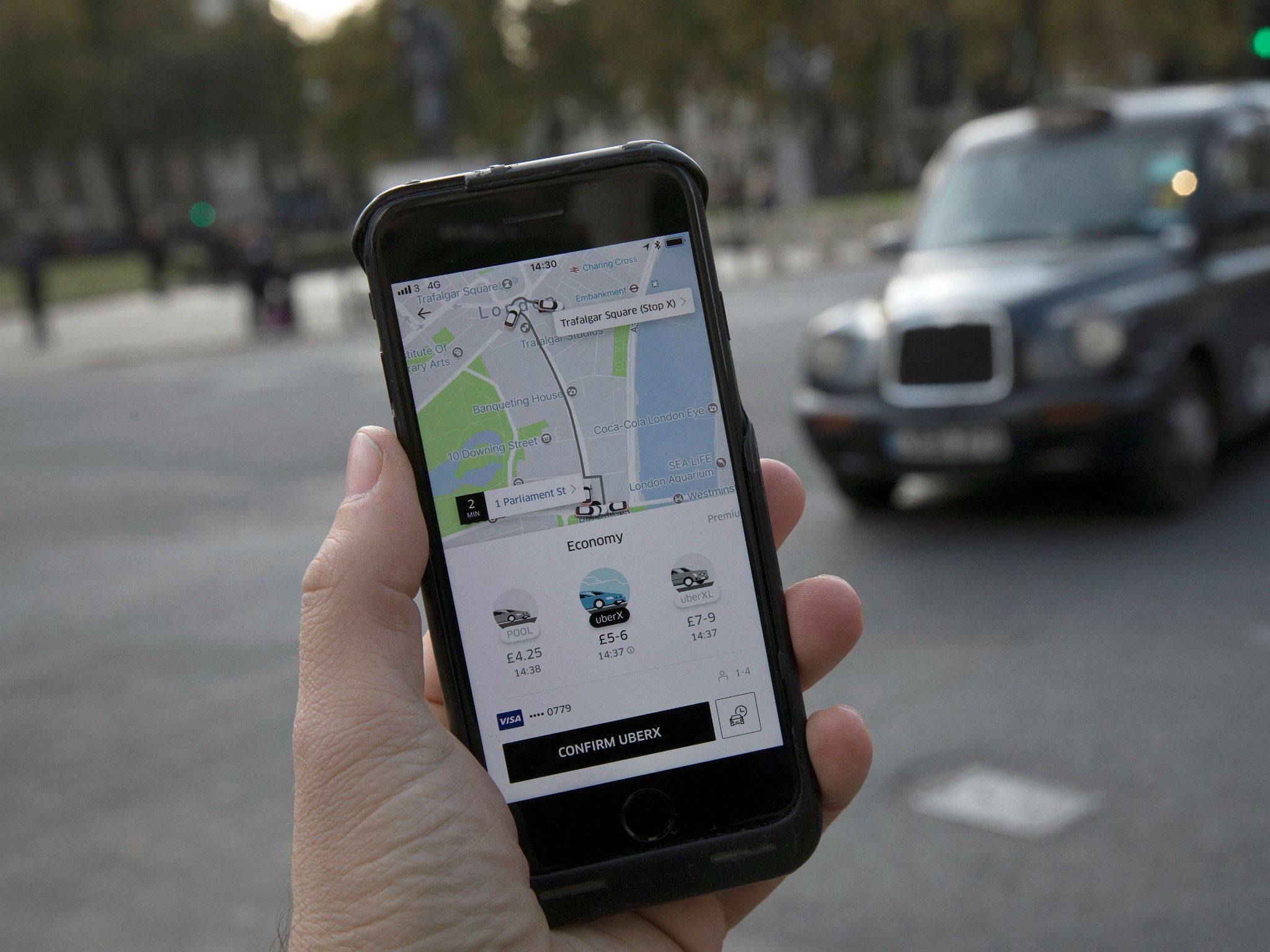Uber's data leak: Is a boycott finally on the cards?
For the first time customers could be hurt by one of the company's misdeeds

Since its launch Uber has resembled a drunk driver careering along a busy road at high speed, heedless of the wreckage in its wake while still somehow picking up fares.
Will the revelation of a hack affecting the data of 57 million customers and drivers – and the fact that the company then concealed it – do anything to change that? Is this the straw that finally breaks the camel’s back?
Past scandals – and there have been a disturbing number of them – have had no discernible impact on the company’s revenues.
Uber generated $1.75bn (£1.3bn) net in the second quarter of this year, a rise of 17 per cent on the previous quarter. It took in $8.7bn in fares, also a 17 per cent rise.
In 2016 bookings totalled $20bn, double the figure of the previous year. The car that drunk driver is at the wheel of? It’s one of those flashy souped-up sports things favoured by Premier League footballers and the oil barons of the Middle East.
The poor treatment and pay of drivers, and the repeated loss of court cases connected to it? The disturbing stories about the treatment of female employees? The fact that founder and former CEO Travis Kalanick was a walking PR disaster?
The impact of that lot on the company’s numbers, if there even was one, was so infinitesimally small as to barely be worthy of comment.
On the face of it, however, the data leak is in a different category. It has the potential to directly impact upon customers, to hurt them as opposed to merely making them complicit in the company’s shabby behaviour, which they arguably fuel every time they put money through the app.
This time the drunk driver has driven off before they’ve properly got out of the car.
The company’s hiding of the problem greatly exacerbates it. It will leave the affected customers wondering what’s been happening to their data while the issue was kept under wraps.
But will this finally persuade them to boycott the famed app?
It might not.
Remember the thousands of flights cancelled by Ryanair? And the poor treatment of affected customers that was sufficient to draw in the Civil Aviation Authority? The scandal barely impacted the low cost airline’s results. People still flew Ryanair, still are flying Ryanair, are still accepting of what that means even though there are alternatives.
Uber, like Ryanair, has competitors. That might give some affected users – and some would-be users – pause for thought. Enough to have a meaningful impact on the company’s revenue generating machine? That remains to be seen.
Change has come to the company in recent months not as a result of the behaviour of its customers but as a result of its investors. The risk of rival Lyft getting a $10bn bung from tech investor SoftBank was enough to bring an end to the battle between early stage investor Benchmark Capital and Mr Kalanick. The former wanted the latter’s influence curtailed (and with good reason). The compromise the two sides agreed does that. SoftBank’s investment will further limit the volatile founder’s clout.
His replacement as CEO, Dara Khosrowshahi will, I imagine, have spent a lot of time on the phone to Tokyo over the last 24 hours.
He will also have to talk to regulators. They will be crawling all over the company, and given the way the breach was handled, that is entirely appropriate.
Uber’s customers seem immune to the company’s misdeeds and it remains unlikely that the hack will change that much. The regulatory authorities will have to save them themselves.
The potential endgame for this business is that the app becomes so ubiquitous that Lyft and its other competitors fall by the wayside until such time as it attains the quasi monopoly status enjoyed by many of the more mature tech titans, whose power is such that they sometimes seem virtually untouchable.
It’s not a gimme. The company is heavily loss making and there are some who doubt it will ever make money. Our drunk driver could still crash.
But it is a possibility.
Under Mr Khosrowshahi, Uber has been cleaning house. It needs to be forced to redouble its efforts long before that possibility starts to turn into something more concrete.
Join our commenting forum
Join thought-provoking conversations, follow other Independent readers and see their replies
Comments
Bookmark popover
Removed from bookmarks